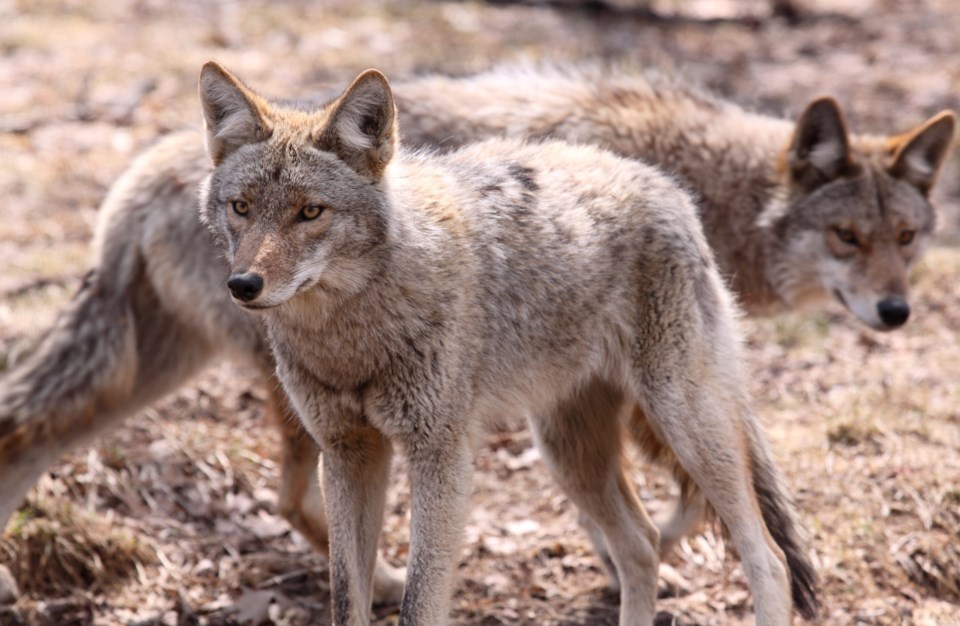Residents along Rockbrook Drive in Lewisville reported sightings of a pack of coyotes roaming the neighborhood in the early hours of the morning. According to NBCDFW, neighbors are worried about how close the coyotes get to their homes, and for good reason.
The Texas Parks and Wildlife Department says coyotes hunt at all hours of the day and night, but that sunset and early morning are the times when they are more active. While these animals are not too big, they can be dangerous for pets and small children, so what should North Texas residents do if they encounter one? The city of Plano offered some advice.
“Bobcat and coyote sightings are not unusual,” said Steve Stoler, Plano’s media relations director, in a tweet. “While seeing one can be a little startling, it’s important to know that those animals have never attacked a single person in Plano’s history.”
According to Stoler, the best prevention for keeping your pets safe include tips like staying with them at all times while outdoors, keeping them on a leash when you’re walking them (while paying attention to your surroundings), removing outdoor food and water sources and getting rid of any possible den spots.
Bobcats, Stoler points out, only hunt animals that are rabbit-sized or smaller. Coyotes, however, will hunt larger prey — but are no threat to healthy adults. Children, he continues, should be taught never to approach or interact with any unknown animal. In spring 2022, a two-year-old child in Lake Highlands was attacked by a coyote after neighbors reported close encounters with wild animals.
“The best course of action for adults to take when seeing a bobcat or coyote is to scare them off by yelling, throwing a small rock at them, spraying them with a high-powered squirt gun or hose, or otherwise making them feel uncomfortable so they learn people are to be avoided,” said Stoler. “Our priority is keeping you and your pets safe.”




